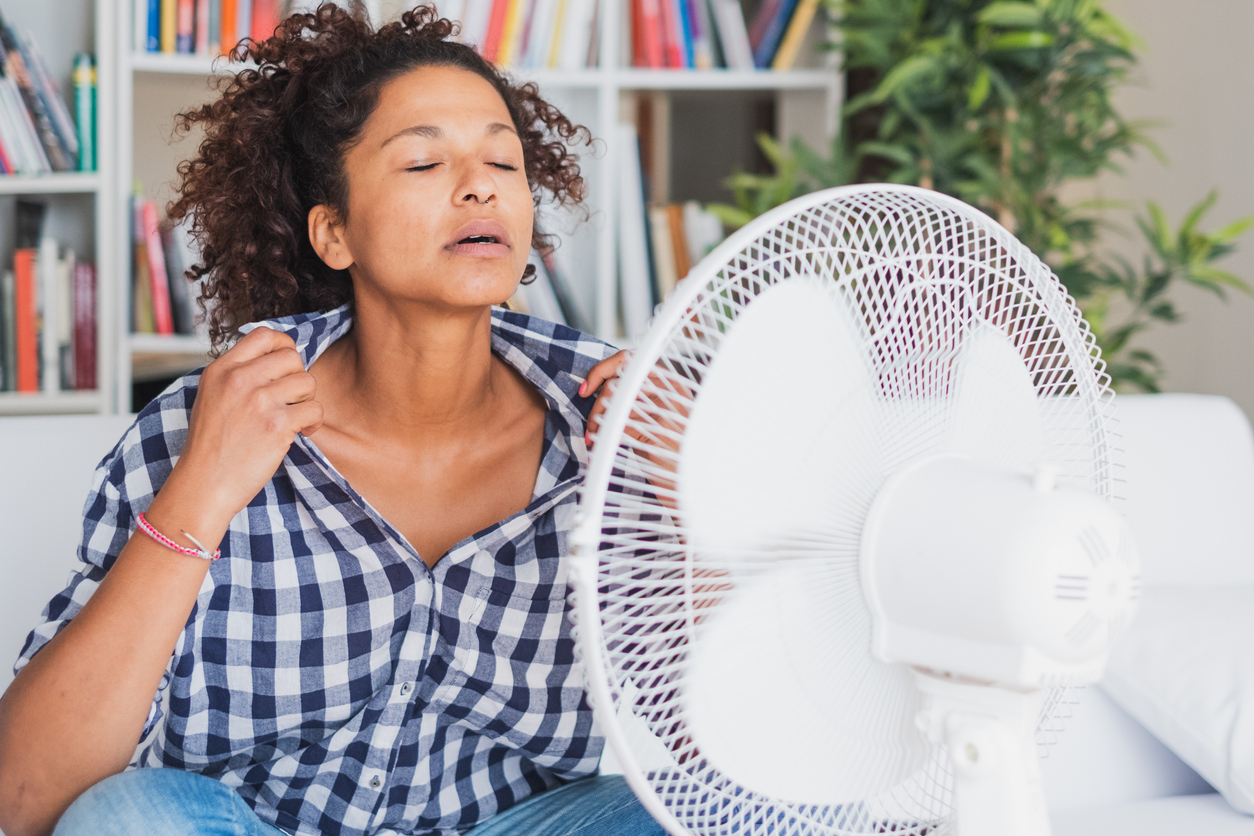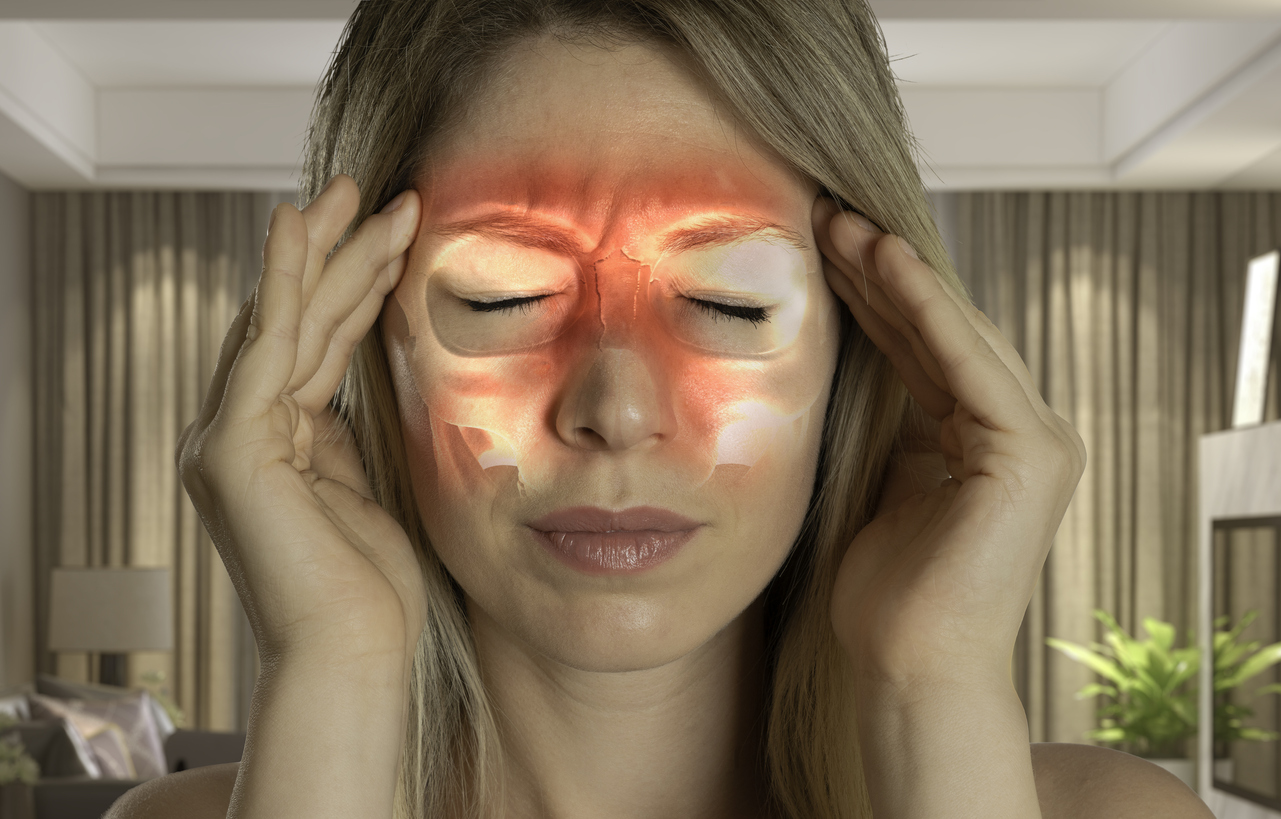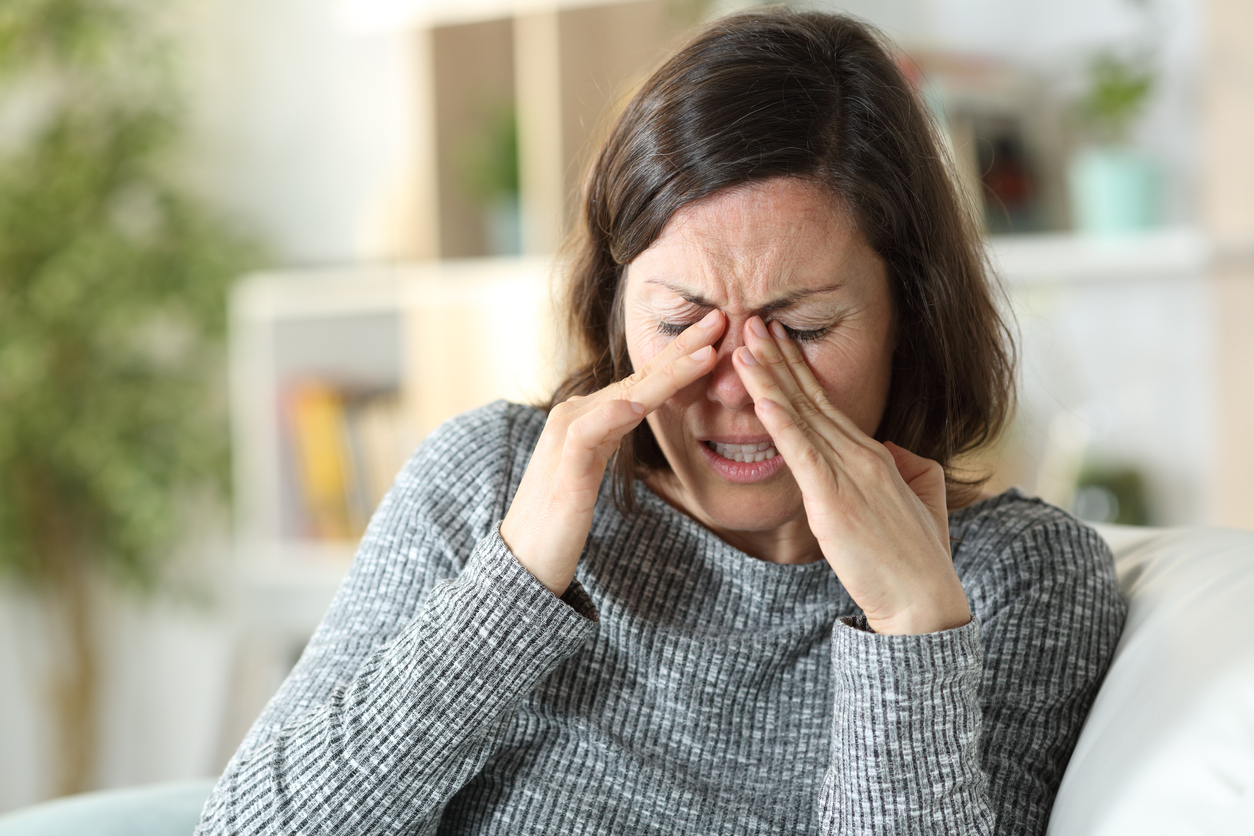When you hear other women talking about their menopausal experience, you probably start mentally preparing yourself for hot flashes, vaginal dryness, and forgetfulness. There are so many different ways this hormone change can affect your body, including this less talked about menopause symptoms: a new or increased sensitivity to allergens.
If your seasonal allergies have become more severe or you suddenly experience a new food allergy, there may be a link to your hormone levels. Let’s take a look at how menopause and allergies are connected.
Hormones and Histamines
The amount of histamine your body produces is directly linked to your hormone levels, specifically your estrogen level. Estrogen is primarily produced in the ovaries and builds up in the uterine lining. When estrogen levels fluctuate, it can impact more than just your fertility and menstrual cycle— it can also impact other quality of life things like your mood, bone and heart health, and sex drive.
Progesterone, the other main female sex hormone, is produced by the ovaries after ovulation and by the placenta during pregnancy. Progesterone helps the body prepare the lining of the uterus for a fertilized egg, regulate blood pressure, and use fat as energy.
Estrogen Dominance During Menopause
As you get older, your body starts to produce less of each hormone. Between the ages of 35 and 50, estrogen levels in the body decrease by about 35%, while levels of progesterone can decrease by about 75%. This leads to something called estrogen dominance, a hormone imbalance in which elevated levels of estrogen can cause pre-menstrual symptoms, hot flashes, decreased libido, depression, and more.
Our bodies naturally create this hormonal imbalance, but lifestyle choices and environmental factors can also contribute to elevated estrogen levels. Your doctor can determine your hormone levels through a blood test.

The Relationship Between Estrogen and Histamine
Histamine is a natural hormone that our body produces. We also can consume it through foods like red wine, cheese, yogurt, or avocados. Although we typically associate histamine with allergies, it plays a few key roles in our body—it tells the body to trigger the production of stomach acid, keeps our brain alert, and helps protect and heal our bodies after injury or allergies.
Our mast cells make and store histamines, but they’re also the site for estrogen and progesterone receptors. When our hormones attach to these receptors, they trigger the production and release of histamine. When histamine is created, it signals to our bodies to produce even more estrogen.
At the same time, estrogen can prevent our bodies from metabolizing histamine, leading to a histamine imbalance, which can happen whenever your estrogen levels are on the rise, like the start of your menstrual period, pregnancy, or when you are perimenopausal.
Symptoms of a Histamine Imbalance

Although a histamine imbalance could present as an increase in the severity of your allergies or an allergic reaction to something you didn’t previously have a reaction to, its symptoms can vary greatly:
- It can affect our skin, causing itchiness, redness, rashes, eczema, hives, sweating, swelling, etc. Itchy skin and itchy eyes are some of the most common allergic reactions.
- It can affect our digestive system, causing acid reflux, nausea, bloating, diarrhea, constipation, gas, sensitivities to certain foods or medications, etc.
- It can affect our respiratory system, causing a runny nose, congestion, sinus pain, cough, difficulty breathing, asthma, etc.
- It can affect our muscles, causing muscle and joint pain, muscle twitches, or worsening fibromyalgia.
- It can affect our heart, causing palpitations, arrhythmia, increased heart rate, low blood pressure, blood clots, etc.
- It can affect our neurological system, causing migraines, insomnia, anxiety, brain fog, memory loss, panic attacks, fatigue, poor concentration, etc.
How to Treat Menopause and Allergies
If you suspect that your symptoms may be caused by menopause and allergies, bring it up with your doctor, who can give you a better understanding of what is going on. Histamine imbalance can present in a wide variety of symptoms, making it look like so many other health conditions. To help rule out lookalike conditions and determine any possible triggers, your doctor might place you on an elimination diet or try a skin or blood test.
There’s no standardized way to test or treat histamine intolerance. Still, your doctor may prescribe a certain diet, hormone-replacement therapy, antihistamines, oral steroids, or topical creams for any rashes. They may also suggest different supplements, like vitamin C or L Glutamine, which act as natural antihistamines, or vitamin B6 or DAO enzyme tablets, which can help with histamine metabolism.
Menopause and a Low Histamine Diet
One of the most effective ways to treat histamine intolerance is by avoiding trigger foods and reducing the histamine in your diet. Let’s take a look at what you can expect from a low histamine diet.
Avoiding Foods High in Histamine
You can decrease your histamine levels by avoiding certain foods, like:
- Shellfish
- Processed or smoked meats
- Fermented dairy products, such as yogurt, buttermilk, sour cream, and cheese (especially aged)
- Fermented or pickled vegetables
- Kombucha
- Certain vegetables, such as avocado, spinach, and eggplant
- Frozen, salted, or canned fish
Avoiding Foods That Trigger Histamine Release
Some foods trigger the release of histamine, including:
- Alcohol
- Certain fruits, such as bananas, papaya, and citrus fruits
- Tomatoes and ketchup
- Beans
- Chocolate
- Nuts
- Food dyes or other additives
Avoiding Foods That Inhibit the Production of the DAO Enzyme
The DAO enzyme is one of the enzymes that metabolize histamines. Foods that can block DAO production include:
- Alcohol
- Black and green teas
- Energy drinks

Avoiding trigger foods and following a low-histamine diet can help alleviate the symptoms of histamine intolerance long-term. Many people find that their body naturally resolves their histamine intolerance over time, allowing them to relieve the symptoms caused by menopause and allergies.
Read Next:
Estrogen, Menopause, And The Risk Of Alzheimer’s







